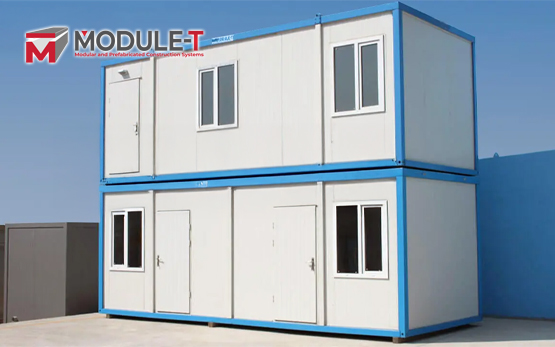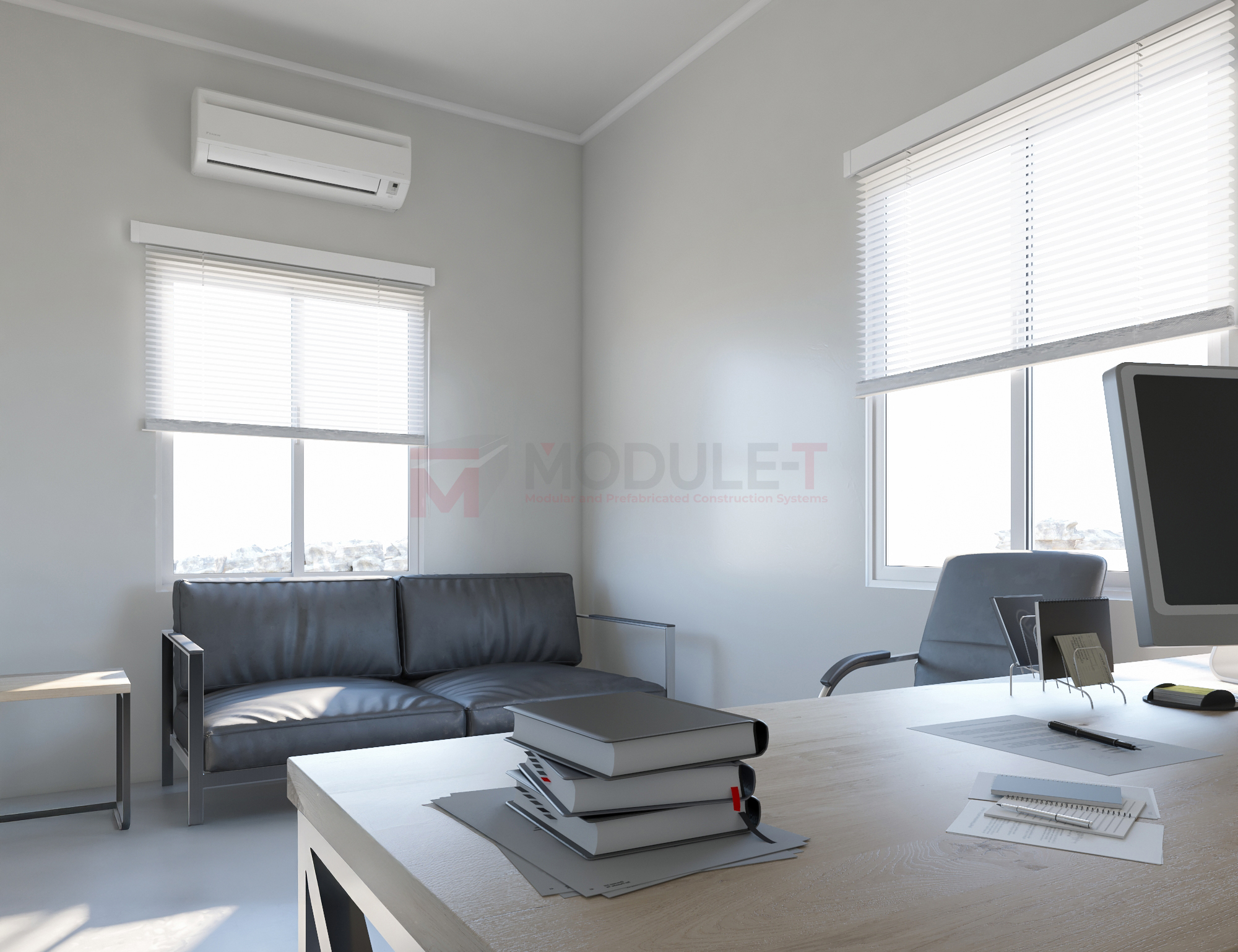1. Cost-Efficiency
One of the most significant advantages of prefabricated office buildings is their cost-efficiency. Modular office spaces can reduce labor expenses by 60–70% compared to traditional construction methods. This is because most components, including panel systems, electrical systems, and HVAC, are pre-built, making assembly and installation quicker and less labor-intensive.
However, while materials and shipping for prefabricated office buildings in Turkey may slightly increase upfront costs, the overall savings still range between 20% and 25%. Moreover, businesses can benefit from spreading modular construction expenses over several years, potentially qualifying for tax benefits that enhance cost-effectiveness.
2. Quicker Completion
Speed is among the advantages of prefabricated office buildings. Modular solutions are perfect for projects requiring rapid completion, especially in industrial facilities where downtime on the factory floor can be costly. Prefabricated panels arrive on-site nearly ready for installation, minimizing delays and significantly reducing construction time.
In the aftermath of natural disasters—such as hurricanes, tornadoes, or floods—where facilities are destroyed, prefabricated office containers, worker camps, and buildings offer a quick and efficient way to restore operations. Prefabricated worker camps, in particular, provide immediate accommodation and support for workers, ensuring business continuity during recovery efforts. Modular construction can be completed within a few months, while traditional methods often take twice as long.
3. Availability of Choices
The advantages of prefabricated office buildings also extend to customization and flexibility. Modular offices can be installed in any open space, such as warehouses, loading docks, or shop floors. These structures can be customized to various sizes, easily disassembled, and transported to different locations as business needs evolve.
Options for customization include windows, doors, flooring, and interior finishes, allowing businesses to create a workspace that aligns with their aesthetic and functional requirements. Prefabricated offices can be outfitted with office supplies and furnishings, offering the same professional look and feel as traditional office spaces.
4. Security
Safety is one of the key advantages of prefabricated office buildings, extending to other modular solutions like modular kiosks. Constructed in controlled factory environments, these structures avoid exposure to risks such as dust, moisture, and extreme weather, which can compromise quality and safety. This environment not only protects the building components but also ensures safer working conditions for employees during the construction process.
In countries like Germany, advancements in prefab technology ensure that prefabricated offices and modular kiosks are just as robust and durable as traditional constructions. Moreover, strict safety protocols during manufacturing further protect workers, reducing the likelihood of accidents and ensuring reliable, high-quality structures.
5. Ease of Permitting Process
One of the advantages of prefabricated office buildings is the simplified permitting process. Modular offices often require fewer permits, depending on regional regulations. Manufacturers ensure the fabricated modules comply with local codes, making inspections quicker and more straightforward. Usually, inspectors only need to verify materials and systems like electrical and mechanical components, as these are pre-installed according to specifications. This streamlined process saves time and money, reducing the administrative burden typically associated with traditional construction projects.




